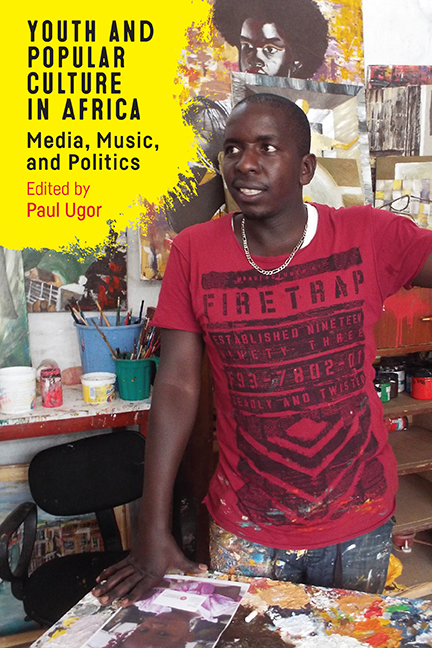Book contents
- Frontmatter
- Dedication
- Contents
- Preface
- Introduction: Youth, Media, and Popular Arts Culture in Contemporary Africa
- Part One Media Globalization, Popular Afro Hip-Hop, and Postcolonial Political Critique
- Part Two Popular Online Media and Democratic Participation and Engagement
- Part Three Popular Arts, Everyday Life, and the Politicization of Culture
- Afterword: Young People and the Future of African Worlds
- Notes on Contributors
- Index
4 - Young People, Music, and Sociopolitical Change in Postwar Sierra Leone
Published online by Cambridge University Press: 26 May 2022
- Frontmatter
- Dedication
- Contents
- Preface
- Introduction: Youth, Media, and Popular Arts Culture in Contemporary Africa
- Part One Media Globalization, Popular Afro Hip-Hop, and Postcolonial Political Critique
- Part Two Popular Online Media and Democratic Participation and Engagement
- Part Three Popular Arts, Everyday Life, and the Politicization of Culture
- Afterword: Young People and the Future of African Worlds
- Notes on Contributors
- Index
Summary
Introduction
For eleven years (1991–2002), Sierra Leone was embroiled in a violent civil war that led to the death of approximately sixty thousand people, with more than a million leaving the country in search of peace and security in other parts of the world. Young people of all ages were caught up in the country's violent crisis as they became both victims and actors that played active or passive roles in the conflict. At the end of the conflict in 2002, several initiatives were undertaken by the government and its international development partners to stabilize the country and address the root causes of the conflict. However, a few years into the postwar reconstruction phase, young people in Sierra Leone, those who initially had high hopes at the end of the war, started to lose faith in government initiatives as the political elites failed to address the historical legacies of the conflict. Although the violence ended, there were no concrete policies and implementation strategies effected to address the root causes of the war. This inaction by the state was exacerbated by the popular perception of a return to the prewar status quo among young people. Now war-wearied and increasingly unwilling to use violence as a means of expressing their grievances, young people took to popular arts as the main tools of engagement with an indifferent state and its ruling class. Popular music in particular became a powerful form of sociopolitical expression, one that caught the interest and cultural imagination of both the younger and older generations. Young people started creating and producing songs on issues related to politics, the economy, corruption, and the marginalization of women and youth. The popular songs and comedy became instrumental in sensitizing the public to the concerns of young people while drawing the attention of the elites to the concerns and anxieties among the wider population.
The instrumentalization of popular arts by Sierra Leonean youth is not unique by any means. Popular arts and their everyday use by youth is common in other parts of Africa, and over the last three decades, this phenomenon has been the subject of extensive academic research in African studies. Of particular interest to researchers has been the multiple ways in which young people interact with, shape, and use popular arts as a means of socio-political expression.
- Type
- Chapter
- Information
- Youth and Popular Culture in AfricaMedia, Music, and Politics, pp. 111 - 131Publisher: Boydell & BrewerPrint publication year: 2021
- 1
- Cited by



